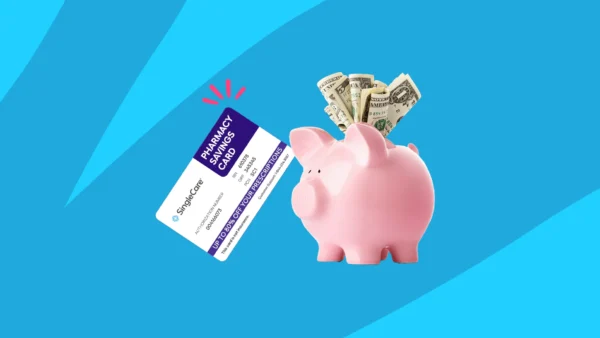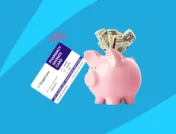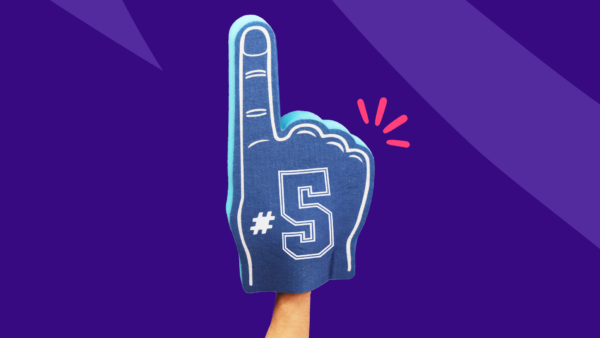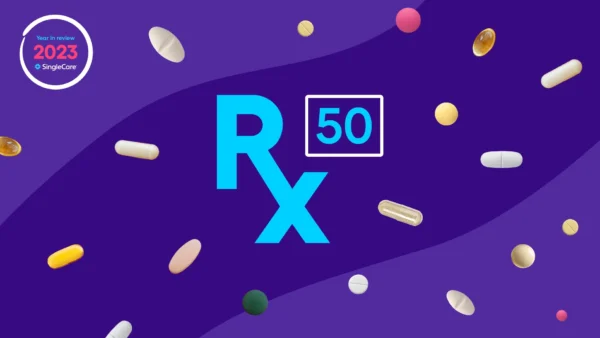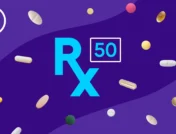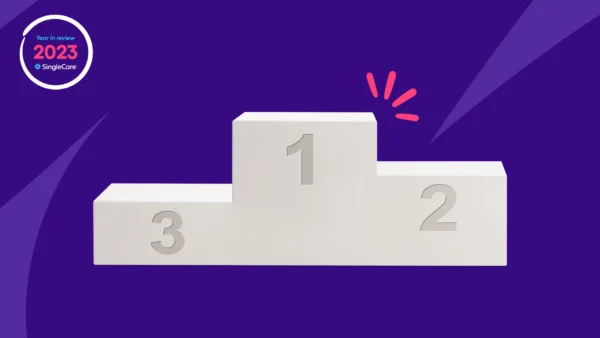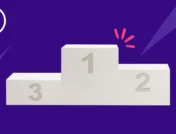Pharmacists are an integral part of your healthcare team. A trusted pharmacist knows your health history and the medications you’re taking. Plus, they’re often available for questions regarding new and existing prescriptions at times when you can’t reach your primary healthcare provider.
But even with the best team in your corner, you may encounter issues at the pharmacy counter. The good news is you can avoid most of these minor mishaps if you have the correct information before you head out to fill a prescription.
With that in mind, here are answers to 11 of the most common pharmacy questions to help you avoid delays in getting your meds.
1. How do you fill a prescription without refills?
One of the more common pharmacy problems you may encounter is trying to fill a prescription without refills. Most states have laws allowing pharmacists to use their professional discernment to provide an emergency 72-hour supply of certain types of medications like heart or blood pressure medications.
If you’re out, your best bet is to get in touch with your healthcare provider as soon as possible. If you cannot get an in-person appointment or approval for a refill over the phone, consider a televisit or a trip to an urgent care clinic. In some cases, the pharmacist will contact your physician for you to request a refill. However, your provider may still require you to see or speak with them before they authorize a refill.
2. What happens if a doctor refuses to refill a prescription?
Finding out your doctor won’t refill a prescription is another top Rx problem. In most cases, this happens when a patient is on a certain medication for quite some time but they have not been to the doctor’s office for an evaluation at the scheduled interval.
It’s part of the reason regular appointments with your primary care provider are important. If you face this problem at the pharmacy, call your healthcare provider or the office staff immediately. They can help get temporary or limited refills until you come in for an appointment.
RELATED: Can pharmacists prescribe birth control?
3. Can you transfer a prescription to a different pharmacy?
Most prescriptions are transferable but subject to availability. For example, if your prescription is sent to your local CVS, and you can’t pick it up there, you can call another CVS and have them transfer the prescription over to a different store, or a different pharmacy chain all together.
However, patients should keep in mind that there are limits on transfer for certain medications, such as those categorized as controlled substances. A conversation with the pharmacist prior to transfer is always helpful.
4. Can you fill two of the same prescriptions?
When a doctor writes a prescription, it is for single use only. In other words, you typically cannot get two of the same prescriptions at one time. Insurance will not pay for the same prescription to be filled twice in the same period.
However, you can get some prescriptions in three-month supplies, so you have more medication on hand. Filling two of the same prescriptions simultaneously is not allowed.
5. Can my doctor call in a prescription to another state?
The laws vary from state to state. Usually medications such as antibiotics or maintenance treatments for chronic conditions can be called in over the phone. However, some states have stricter policies about the types of prescriptions other healthcare providers like nurse practitioners can prescribe.
6. Can you get your prescription filled early?
Leaving town and need to fill a prescription early? No problem. Most insurance plans make an accommodation once or twice a year in case of vacation or loss.
Certain controlled substances, such as pain medications, are not eligible for early refill. Most states have databases that monitor when these medications are dispensed to prevent early refills.
7. What should you do if you lose a prescription?
If your medication is lost, damaged, or stolen, you will need to get a refill or a new prescription. The best place to start is with your healthcare provider. Let your physician know what happened. You can also ask the pharmacist for the best course of action. If you’ve established a relationship with a local pharmacy, it may be easier to expedite this process.
Some lost, stolen, or damaged prescription medications are easier to refill than others. Controlled substances often require a trip to the doctor’s office to obtain a new script. If your medication was stolen, you might be advised to call the police and report it. It’s important to note that even if you get a refill on a lost, stolen, or damaged prescription, your insurance may deny a claim to pay for it, and you will be required to pay out of pocket. (Be sure to use SingleCare in that case to lower the cost!)
8. How long will a pharmacy hold your prescription?
If you have a prescription waiting for pick-up but can’t make it to the pharmacy right away, you might be wondering how long the pharmacist will hold your order. While the exact length of time depends on the pharmacy, in general, most pharmacies will hold your prescription anywhere from two to 14 days before they cancel the order, with the average hold time being around seven to 10 days. If you cannot make it in, a family member or friend can pick most prescriptions up for you.
To expedite this process, call the pharmacist ahead of time and let them know the name of the person picking up your prescription. Many pharmacies have an automated program or a technician that calls you when an order is ready. They also send reminders with a number to call if you need help.
9. What happens if you don’t pick up a prescription?
Most prescriptions only take a few hours to a few days to fill. If you don’t return to pick up your meds, the pharmacy will likely attempt to contact you to arrange for pick-up. However, if you fail to return or send someone else to get your prescription, the pharmacist will cancel the prescription and restock the medication.
10. Does my doctor know if I filled my prescription?
Pharmacies keep electronic and hard-copy records of all prescriptions filled in their store. Your doctor can always contact the pharmacy to see if you filled a prescription. If the pharmacy uses an electronic health record (EHR) system, the prescribing physician may be able to log in and see if you filled a prescription. Your physician or healthcare provider may also access the Prescription Drug Monitoring Program (PDMP), an electronic database for controlled substances, to see if a prescription has been filled.
11. How do pharmacies track prescriptions?
Pharmacies track prescriptions with software specific to their facility as well as sophisticated online databases that track and record prescription drugs, especially controlled substances. Health authorities can view and track controlled substance prescriptions through the state’s prescription drug monitoring database program or PDMP.
Your community pharmacists want to help. They are your advocates, and one of the most accessible healthcare providers. Even if you encounter one of these pharmacy problems, they are standing by to assist—and make sure you have the medication you need.




